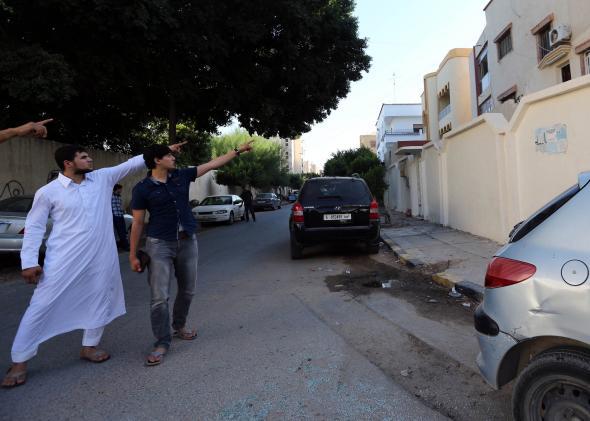In the first national security speech of his second term last May, President Obama stated that “Our systematic effort to dismantle terrorist organizations must continue. … But this war, like all wars, must end. That’s what history advises. It’s what our democracy demands.”
This past weekend, we got a glimpse of what these systematic efforts will look like going forward, when U.S. forces carried out simultaneous operations against terrorist targets in Libya and Somalia. But the Somalia operation in particular raises the difficult question of how exactly the war against al-Qaida can ever end when the definition of al-Qaida continues to shift.
According to the Washington Post, “U.S. officials said both operations were lawful under war powers that Congress granted the executive branch after the Sept. 11, 2001, terrorism attacks.”
The operative known as Abu Anas al-Libi, captured in Libya on Saturday night, is suspected of involvement in the 1998 bombing of two U.S. embassies in East Africa. Authorities are comparing his capture to the 2011 detention of Ahmed Warsame, who was seized aboard a fishing vessel in the Gulf of Aden, held secretly at sea and questioned for 40 days, then flown to New York for arraignment.
Given the publicity around this case, Libi’s period of detention at sea is likely to be a lot shorter. The Libyan government is publicly protesting the operation, though American officials are dropping hints that they agreed to it in private. Secretary of State John Kerry asserted today that as a senior al-Qaida member, he was “a legal and an appropriate target for the US military.”
The unsuccessful Navy SEAL operation against Shabab leader Ikrimah in Somalia, believed to be a top planner of the group’s operations abroad though not tied directly the Westgate mall attack, seems like a little bit more of a stretch in terms of the Authorization for the Use of Military Force passed after 9/11, which Obama said in his speech in May that he wanted to Congress to “refine” in order to focus it more narrowly on al Qaeda.
As law professor and frequent Slate contributor Deborah Pearlstein writes at Opinio Juris, “Al Shabab, born well after 9/11 as a domestic Somali insurgency of sorts, and only recently (and to an indeterminate degree) allied with whatever remains of what is now called Al Qaeda, is not nearly as obviously covered by the AUMF.”*
However, Pearlstein along with other legal scholars writing on the case seem to conclude that a strike against Ikrimah was legally justified given the fears of Shabab attacks against U.S. interests and American allies. The Times reports that Ikimrah is “an associate of two al-Qaida operatives who were involved in the 1998 bombing of the American Embassy in Nairobi and in the 2002 attacks on a hotel and an airline in Mombasa.”
As the BBC noted last week, Shabab’s nominal induction into the global al-Qaida franchise shows a “new style of al-Qaeda leadership. Zawahiri and his cohorts are more accommodating–and also more ambitious in their scope–than their predecessors.”
And if indeed U.S. Special Operations commanders are “pushing for a more aggressive response” to the threat from al Shabab, it rasises the question of how exactly the U.S. war against al-Qaida can ever wind down if “al-Qaida” becomes a more loosely defined threat. Is the U.S. at war with any group that takes up the al-Qaida banner? (Let’s not even get into the implications of that in Syria.)
University of Texas law professor Bobby Chesney, meanwhile, asserts that the United States doesn’t even have to be “at war” with al-Qaida to carry out the kind of operations we just saw. “Much or even most of current counterterrorism policy does not require the United States to continue to assert the relevance of an armed-conflict model,” he writes.
If that’s the case, and if a SEAL Team 6 raid on a foreign country is no longer considered a sign of armed conflict, it makes one wonder if one day, when the “war on terror” does actually end, we will even notice the difference.
*Correction, Oct. 7, 2013: This post originally misspelled the name of the blog Opinio Juris.
